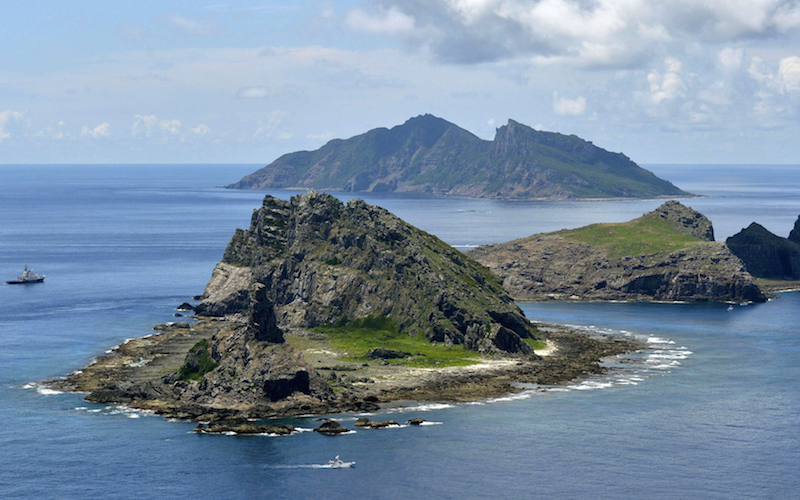
China’s New Cruise to the Paracels: When Business is not just Business
On September 2, China opened a new cruise route from Hainan province, transferring over 200 passengers to the Paracel Island. The state-owned Xinhua implied that China’s cruise ship would help discourage “unauthorized, and potentially disastrous, tours” to the Paracels. However, this is not a mere business act as it was portrayed by the Chinese media but a politics-driven move which unfortunately, might have a negative impact on its relationship with neighboring countries.
“Salami – slicing” strategy
China stopped its notorious oil rig operation near the Paracel Islands almost a month ago. On July 23rd, Xinhua reported that up to 1.7 km of channels had been dredged around Drummond (Jinqing) Island (which belongs to the Paracels) to provide Chinese fisherman with “more convenient living conditions.” Earlier, in June, China announced the construction of a kindergarten and primary school on Woody island. In that context, the new tour could be seen as another unilateral action in China’s tactic to incrementally push its territorial claims inside the disputed area. The Diplomat stated that this latest move from China could help reinforce its illegal administrative control of the Paracels by transferring a large number of people to the islands without the need to conduct large-scale construction. The article also revealed that passengers were required to hold a mainland Chinese passport and most of them were actually officials rather than tourists.
China’s recent tactics is to “civilianize” the dispute and protect its image by avoiding using official military means.
For example, during the latest clash with Vietnam regarding the oil-rig crisis, Yi Xianliang, deputy director-general of the Department of Boundary and Ocean Affairs, stated that Chinese ships in the area were all civilian (while in reality, China’s missile ships were present). In this case, those kinds of tourist boats can help perform surveillance activities without resorting to naval ones.
It is also worth noting that these “tourist” activities have been carefully planned in advance. Information regarding this trip, as well as two others on September 13 and 27, was reported by People’s Daily back in August. In 2009, Hanan authorities announced that the province, including the Paracels (which China calls Xisha), would be developed as a tourist destination. Three years later, Huang Peng, an official with the transport bureau of Hainan, told Xinhua that bigger ships would be built and tourism to the Paracels is “a declaration of sovereignty over the islands.” At the Baou Forum, Hainan’s executive vice governor also unveiled the same plan.
Possible consequences
The tour program was announced days after Vietnam and China reached a three-point agreement during a visit to Beijing by Le Hong Anh, special envoy of General Secretary of the Communist Party of Vietnam on August 27. The agreement clearly states that both sides “will earnestly implement a basic guideline for the resolution of China-Vietnam maritime issues signed in October 2011” and avoid “actions that might complicate and expand disputes” in the South China Sea. Not long before, during a China – ASEAN meeting, China’s Foreign Minister Wang Yi said that China is ready to “push for the early conclusion of a code of conduct (COC) of the parties in the South China Sea” – an encouraging sign for all the claimants.
What is clearly evident is the contrast between China’s words and actions, which could result in damages not only to the mending efforts made by Vietnam and China after the oil-rig incident but also to China’s reputation in the international community. One can’t help but wonder about China’s good faith and sincerity in its so-called willingness to peacefully resolve the disputes and maintain stability in the South China Sea. To a broader extent, China’s action could hurt its own foreign policy. Multilateral regional initiatives have been introduced by China recently as part of a grand strategy to compete with the West and extend its influence/soft power in Asia. In 2014, China officially proposed the idea of establishing the Asian Infrastructure Investment Bank with China playing the key role, calling on other Asian countries to participate.
In addition, China has been touting Xi Jinping’s “Maritime Silk Road” plan which aims at promoting trade among countries lying along the passageways from China to India through the Straits of Malacca and the South China Sea, and also encourages the reduction of tension regarding territorial disputes. However, up until this point, those initiatives haven’t been welcomed as warm-heartedly as China had expected and doubts about what the actual purpose is have been raised. The cruise program is exactly the kind of action that push others further away from cooperating with China’s proposal. In short, there are political implications behind China’s cruise to the Paracel Islands. Not to argue whether it is legitimate or not, what China has been doing is making the community more wary about its true intention and make it harder for China to work with its partners to achieve the same end.
